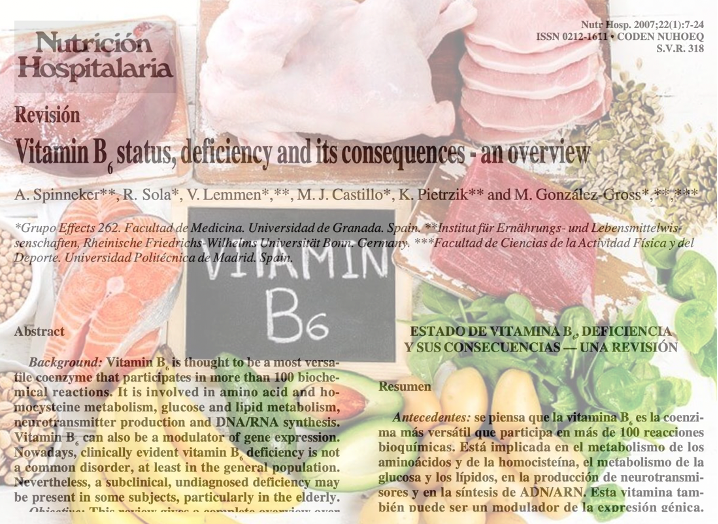Your basket is currently empty!
Vitamin B6 status, deficiency and its metabolic consequences
Vitamin B6 status, deficiency and its metabolic consequences is considered to be one of the most common coenzymes that participates in more than 100 enzymatic reactions and in the critical functioning of cells, including carbohydrate metabolism, amino acid metabolism, especially homocysteine, gluconeogenesis, glycogenolysis, lipid metabolism, neurotransmitter production, and DNA/RNA synthesis.
Vitamin B6 can also be a modulator of gene expression. It also plays an important role in transamination, decarboxylation, and the initial steps of porphyrin synthesis. Pyridoxine plays a role in cognitive development through neurotransmitter synthesis, immune function with the production of interleukin-2 (IL-2), and hemoglobin formation.
A deficiency of vitamin B6, even mildly, can have an impact on metabolism and development. Adequate B6 is required for fetal brain development, and this continues into infancy. Vitamin B6 recommendations are made in accordance with age and life stage, including pregnancy and breastfeeding, and involve the highest recommended daily allowance.
Several diseases and health impairments are associated with an undesirable state of various B6 functions. This condition can also worsen with age. It has been proposed that suboptimal levels of vitamin B6 are associated with certain diseases that particularly afflict the elderly population: impaired cognitive function, Alzheimer’s disease, cardiovascular disease, and different types of cancer. Thus, some of these problems may be related to elevated homocysteine concentrations associated with vitamin B6 deficiency, but there is also evidence that, independent of other mechanisms of homocysteine, a suboptimal status of vitamin B6 may increase the risk of these chronic diseases.
Therefore, adequate vitamin B6 is necessary to achieve optimal health.

Spinneker, A., Sola, R., Lemmen, V., Castillo, M. J., Pietrzik, K., & Gonzalez-Gross, M. (2007). Vitamin B6 status, deficiency and its consequences-an overview. Nutricion hospitalaria, 22(1), 7-24. [Link]
by
Tags:
